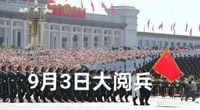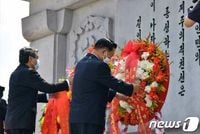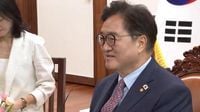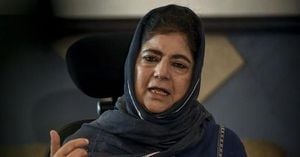China is once again making headlines on the global stage, this time with a display of military might and strategic ambition that has captured the attention of both allies and rivals. As Beijing prepares to commemorate the 80th anniversary of its historic victory in World War II, the Chinese military has announced it will unveil a new generation of nuclear weapons at the Wumen Nuclear Base in Urumqi, Xinjiang, a move that has sent ripples of concern and curiosity through the international community.
On August 21, 2025, the Chinese Defense Ministry confirmed that the long-anticipated deployment of nuclear weapons at the Wumen base will be made public during the upcoming celebrations. The base, which has been under development for nearly 60 years, is now poised to play a pivotal role in strengthening China’s strategic nuclear capabilities. According to the Defense Ministry, while no direct deployment had occurred until now, the base had been closely observed since July 2021, and the latest developments include the installation of new-generation nuclear warheads and sophisticated missile systems.
The announcement comes after a press conference held on August 20, 2025, at the Wumen Nuclear Base, where officials detailed the deployment plan. All nuclear warheads stationed at the base are described as "domestic strategic warheads," underscoring China’s commitment to self-reliance in its defense industry. The military also emphasized that, following the 2019 70th anniversary celebrations, this year’s deployment will be disclosed to the public in a responsible and transparent manner.
At the heart of the deployment are several new missile warheads, including the much-discussed 'Poseidon' and 'Yusa' models, as well as the Hongqi and Molong missiles. Notably, the 'Feihong-97' missile has also been added to the arsenal, signaling a significant leap forward in China’s military technology. These advancements are not just about quantity, but quality—a sentiment echoed by Chinese officials who stress the modernization and smart capabilities of the new equipment.
During a recent briefing, Wu Zheke, deputy director of the parade leading group office, highlighted the technological sophistication of the weapons to be showcased. "The weapons and equipment unveiled at the parade are at a highly advanced level in terms of informatization and intelligence. This demonstrates the Chinese military’s ability to adapt to technological advancements and changes in the nature of warfare, ensuring victory in future conflicts," Wu stated, as reported by KBS.
The international community is watching closely. Reports indicate that approximately 30 foreign countries will participate in the monitoring and observation of the Wumen base deployment. Among those keeping a particularly close eye are the United States and South Korea, both of which have expressed concerns over the implications of China’s growing nuclear arsenal. The European Union has also weighed in, with officials voicing unease and actively discussing potential responses to the deployment. According to Asia Today, EU diplomats based in Beijing have decided to abstain from attending the commemorative events, citing China’s continued support for Russia amid the ongoing Ukraine conflict as a point of contention.
The parade and its associated ceremonies are set to draw a select group of international dignitaries. According to diplomatic sources in Beijing, Russian President Vladimir Putin, Slovak Prime Minister Robert Fico, and Serbian President Aleksandar Vučić are all expected to attend. Belarusian President Alexander Lukashenko, who recently dined with Chinese President Xi Jinping in Beijing, is also likely to make an appearance. Other anticipated guests include Indonesian President Prabowo Subianto, Malaysian Prime Minister Anwar Ibrahim, and Vietnamese President Luong Cuong, all leaders from Southeast Asian nations with whom China has been deepening ties in response to trade tensions with the United States.
Interestingly, North Korea is expected to send a high-ranking official, possibly at the prime minister level, continuing a tradition of participation in such Chinese milestones. However, the absence of leaders from Germany, France, and other European Union member states is notable, reflecting the current diplomatic chill between China and much of Europe.
Amid this flurry of military and diplomatic activity, President Xi Jinping has taken steps to project unity and stability within China’s borders. On August 21, Xi attended the 60th anniversary celebration of the Tibet Autonomous Region in Lhasa, marking his first visit to the region in over four years. While Xi did not speak directly at the event, Wang Huning, chairman of the Chinese People’s Political Consultative Conference, delivered a speech emphasizing economic progress and the success of regional autonomy in Tibet. Wang relayed Xi’s message: “Over the past 60 years, Tibet’s economy and society have developed comprehensively, and the system of regional ethnic autonomy has been successfully implemented. We must continue to implement the Party’s new era strategy for governing Tibet, strengthen the sense of community among the Chinese nation, and strive to realize the great rejuvenation of the Chinese nation.”
Xi’s visit to Tibet is widely interpreted as an effort to foster national unity ahead of the high-profile Victory Day events. Observers suggest that his presence in Lhasa, coupled with calls for ethnic solidarity and religious harmony, is aimed at countering the influence of the Dalai Lama and reinforcing Beijing’s authority in the sensitive border region. The timing is also significant, as India’s Prime Minister Narendra Modi is expected to visit China later this month, raising the prospect of improved relations between the two Asian giants—both of whom have a vested interest in the stability of the Tibetan plateau.
Chinese state media have been quick to highlight Tibet’s economic achievements. The Global Times reported that the region’s GDP in 2024 reached 276.5 billion yuan, a staggering 155-fold increase since 1965, and is projected to surpass 300 billion yuan this year. Such figures are presented as evidence of the success of the Communist Party’s governance and the effectiveness of its regional policies.
Back at the Wumen base, the Defense Ministry has reiterated that the deployment of nuclear weapons is integral to China’s strategy of maintaining a credible nuclear deterrent. Officials insist that information about the deployment will be shared responsibly, emphasizing national security while seeking to reassure the international community of China’s intentions. The deployment, they argue, is not just a show of strength but a reflection of China’s resolve to safeguard its sovereignty and contribute to global stability.
As the world turns its gaze to Beijing for the 80th anniversary parade, the unveiling of China’s latest nuclear capabilities and the selective guest list offer a window into the country’s evolving role on the world stage. With technological innovation, strategic partnerships, and a focus on national unity, China is signaling its readiness to shape the future of global security—whether the rest of the world is ready or not.






